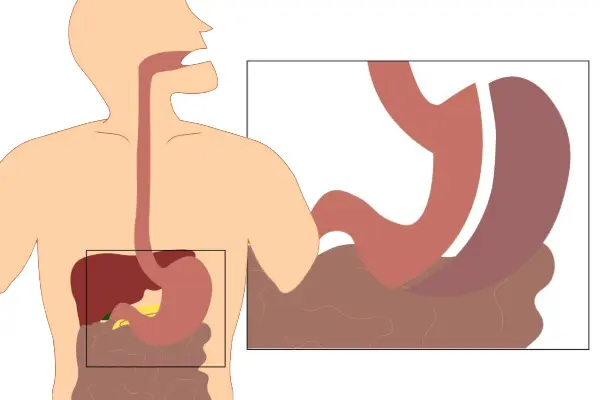
What Is Gastric Sleeve Surgery?
Gastric sleeve surgery, also called laparoscopic sleeve gastrectomy, is one of the most common bariatric procedures in the United States. During this surgery, about 75–80% of the stomach is permanently removed. The remaining stomach is reshaped into a thin, sleeve-like pouch that looks similar to a banana.
This procedure works in two ways:
- Restriction: The smaller stomach limits how much food you can eat at one time.
- Hormonal changes: Removing part of the stomach lowers levels of ghrelin, the “hunger hormone,” which helps reduce appetite and cravings.
Because of this combination, patients often feel satisfied after much smaller meals, making long-term weight loss achievable.
Benefits of Gastric Sleeve Surgery
Gastric sleeve surgery is not just about weight loss. Studies show it also provides major health benefits, especially for people with obesity-related conditions. Some of the most common benefits include:
- Significant, sustainable weight loss (often 50–70% of excess weight in the first 1–2 years).
- Improvement or resolution of type 2 diabetes, high blood pressure, and sleep apnea.
- Reduced joint pain and improved mobility.
- Better overall quality of life and self-confidence.
Compared to gastric bypass, the sleeve procedure is generally simpler because it does not involve rerouting the intestines, which can reduce risks and long-term complications.
Who Is a Candidate for Gastric Sleeve?
You may qualify for a gastric sleeve procedure if:
- Your BMI is 40 or higher, or
- Your BMI is 35–39.9 and you have at least one obesity-related condition (such as diabetes, hypertension, or sleep apnea).
Most candidates have already tried diet, exercise, and medication without long-term success. A full evaluation with your bariatric surgeon will determine whether the sleeve is the right option for you.
Recovery After Gastric Sleeve Surgery
Most gastric sleeve procedures are performed laparoscopically, meaning patients typically spend 1–2 nights in the hospital and recover faster than with open surgery.
- First few days: Liquid diet, walking encouraged to prevent blood clots and reduce gas pain.
- First 2 weeks: Full liquid diet while the stomach heals.
- Weeks 3–4: Transition to soft foods, then gradually introduce solid foods.
- Return to work: Many patients return within 2–4 weeks, depending on their job.
Ongoing follow-up visits, vitamin supplementation, and nutrition counseling are key to long-term success.
Risks and Considerations
Like any surgery, gastric sleeve carries risks. Possible complications include bleeding, infection, blood clots, or leakage at the staple line. Long-term risks may include acid reflux or vitamin deficiencies.
However, serious complications are uncommon, and studies show gastric sleeve has one of the best safety profiles among bariatric procedures. Choosing an experienced surgeon and following your care team’s guidance significantly reduces risk.
Why Choose BASS Bariatric Surgery Center?
At BASS Bariatric Surgery Center in Walnut Creek and Brentwood, Dr. Brian Chin and Dr. Jason Moy have performed thousands of successful bariatric procedures. Our team provides complete care, including:
- Comprehensive evaluations to see if gastric sleeve is right for you.
- Personalized nutrition and lifestyle support before and after surgery.
- Ongoing follow-up care to ensure safe, sustainable weight loss.
We proudly serve patients across the East Bay Area, helping them reclaim their health and quality of life.
FAQs About Gastric Sleeve Surgery
How much weight will I lose?
Most patients lose 50–70% of their excess weight within the first 1–2 years.
Will my insurance cover gastric sleeve surgery?
Many insurance plans cover bariatric procedures if you meet specific medical criteria. Our team will help guide you through the pre-approval process.
How is gastric sleeve different from gastric bypass?
Both procedures are effective, but sleeve gastrectomy only reduces stomach size and does not reroute the intestines, making it a simpler operation with fewer long-term risks.
Call 925-940-1052 or request a consultation online to learn if gastric sleeve surgery is right for you.